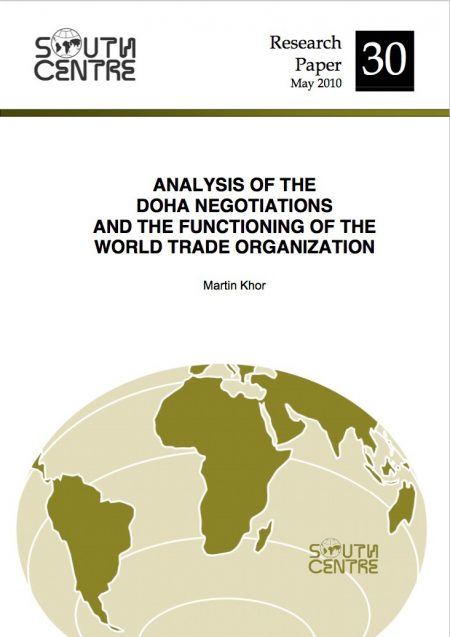Reports South Centre: Analysis of the Doha negotiations and the Functioning of the WTO
South Centre: Analysis of the Doha negotiations and the Functioning of the WTO
There are divergent views on whether and how to reform the decision-making system in the WTO, which is widely perceived to be non-transparent and non-inclusive. Those who advocate the retention of the status quo may even agree that the system is exclusionary but claim that for the sake of “efficiency” in coming up with an outcome, the decision-making system has to be confined to a relatively few delegations, while the other Members not in the inner circle can also make their views heard through their representatives in the “Green Room.” On the other hand, those who are critical of the non-transparent and nonparticipatory nature of decision-making argue that the exclusionary system and the manipulations that often characterize the operations of meetings and production of drafts do not guarantee that an outcome will be obtained, as seen by the conferences and miniMinisterials ending more times in failure and collapses than in success. And even in the case of one of the few “successes”, the Doha Conference of 2001, the decisions concerning some of the most controversial elements could not be sustained and were overthrown by another decision subsequently.
WTO DOHA
